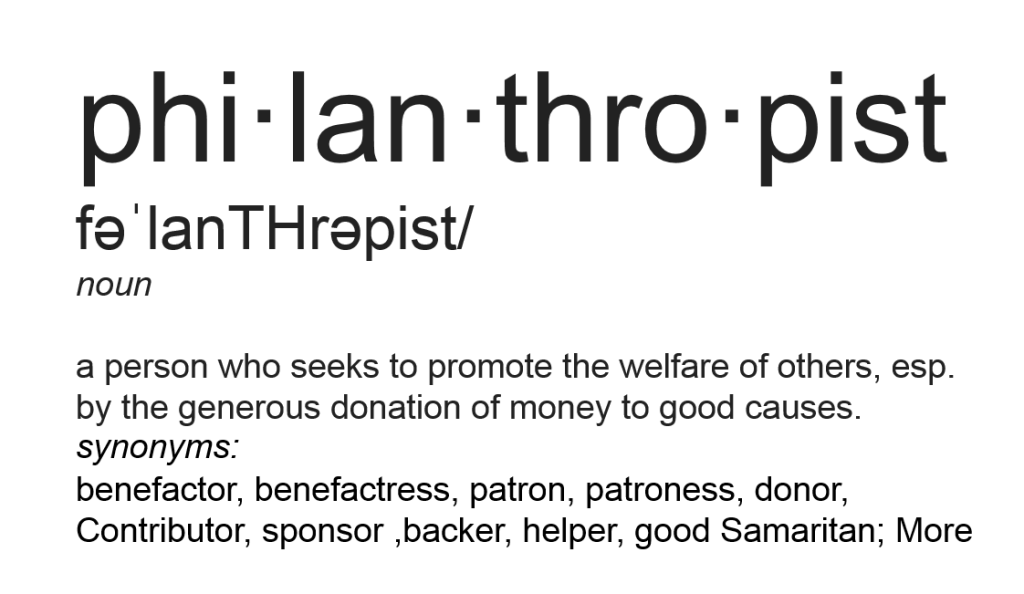The concept of philanthropy often evokes images of affluent individuals, endowed with resources, effortlessly distributing wealth to causes they cherish. However, in the realm of Bahá’í teachings, the essence of giving transcends mere monetary contributions. It is an intrinsic quality – a “philanthropist at heart.” This idea illustrates that even those with modest means can embody the spirit of generosity and contribute meaningfully to the well-being of humanity.
First and foremost, it is essential to delineate what philanthropy signifies within the Bahá’í framework. Philanthropy is not merely the act of donating money; it is a profound manifestation of love and service to humanity. It encourages individuals to empathize with the struggles of others, irrespective of their material possessions. Thus, the heart of a philanthropist beats within every person, regardless of financial status. This vast reservoir of compassion and kindness can be harnessed into actionable forms of philanthropy.
Imagine, if you will, a weary traveler traversing a barren landscape. Each step is heavy, burdened by the weight of uncertainty and fatigue. However, the traveler is not alone; nearby, another figure stands in solidarity – holding out a drink of water. This interaction symbolizes an essential Bahá’í principle: alleviating the pain of another, regardless of one’s own circumstances, enriches both the giver and the receiver. Just as the traveler benefits from the gesture, so too does the giver cultivate their own spirit of philanthropy.
In the spirit of this allegory, one might contemplate practical avenues through which to foster a philanthropic disposition. Volunteering time and effort offers a profound means of contribution that isn’t dependent on financial wealth. Engaging in community service, participating in local initiatives, or assisting a neighbor in need can have a ripple effect of positivity. Such acts embody the essence of Bahá’í teachings, reflecting the interconnectedness of humanity. It underscores the belief that any act of kindness, regardless of scale, is potent in its capacity to foster community resilience.
Furthermore, nurturing a mindset of generosity can instigate a transformative cycle of compassion. Consider the metaphor of a seed planted in fertile soil. The seed represents the desire to give. When nurtured, it flourishes into a tree, whose branches provide shade and fruit to those around it. This imagery is pivotal, as it illustrates that even small acts of kindness can grow into broader movements of philanthropy. Even a simple act of listening to someone in distress can serve as a foundation for a profound relationship and, in turn, inspire further acts of service.
Moreover, the idea of giving extends beyond tangible gifts. Emotionally sharing one’s experiences and offering support can be incredibly rich in value. In Bahá’í belief, the essence of morality and ethics permeates human interactions. Consequently, sharing wisdom, knowledge, or companionship becomes a philanthropic endeavor. For those who may not possess financial resources, the act of sharing one’s time or talents becomes a meaningful contribution. A skilled artisan, for example, might offer workshops to teach others, cultivating talent while instilling confidence. This is an invaluable gift that transcends wealth.
Additionally, the power of advocacy should not be underestimated in the realm of philanthropy. Speaking up for social justice, championing causes, and raising awareness can mobilize communities and ignite change. Even the most financially constrained individual can impart their voice to address injustices, advocate for the disenfranchised, or support the environment. Each of these actions reflects deep-seated commitments to humanitarian endeavors. Advocacy serves as a catalyst, sparking the flame of awareness necessary for broader societal change.
As one navigates the profound teachings of the Bahá’í Faith, the understanding that wealth is not solely financial becomes increasingly salient. Wealth can manifest in various forms, including emotional strength, intellectual capacity, and spiritual insights. The importance placed on these forms of abundance encourages individuals to view their circumstances through a lens of gratitude and opportunity. Rather than succumbing to a scarcity mindset, recognizing and utilizing one’s innate gifts fosters a culture of generosity.
Moreover, this transformative perspective cultivates a community that thrives on collaboration and mutual support. The Bahá’í community is rooted in the belief of unity in diversity, wherein individuals of all backgrounds converge to uplift one another. This principle invites every individual to participate in the collective effort to build a more harmonious society. Herein lies the beauty of being a philanthropist at heart: it ignites a movement where every person’s contribution is valued, creating a mosaic of generosity where each piece, regardless of size, is essential.
In conclusion, the teachings of the Bahá’í Faith illuminate the notion that true philanthropy is accessible to all. Individuals do not need vast resources to express generosity; rather, it blooms from the heart and manifests in myriad forms – through service, advocacy, talent sharing, and emotional support. The call to action is clear: embark on the journey of philanthropy by cultivating the seeds of kindness in your everyday life. In doing so, one can illuminate not only their life but also the lives of countless others in the tapestry of humanity.
